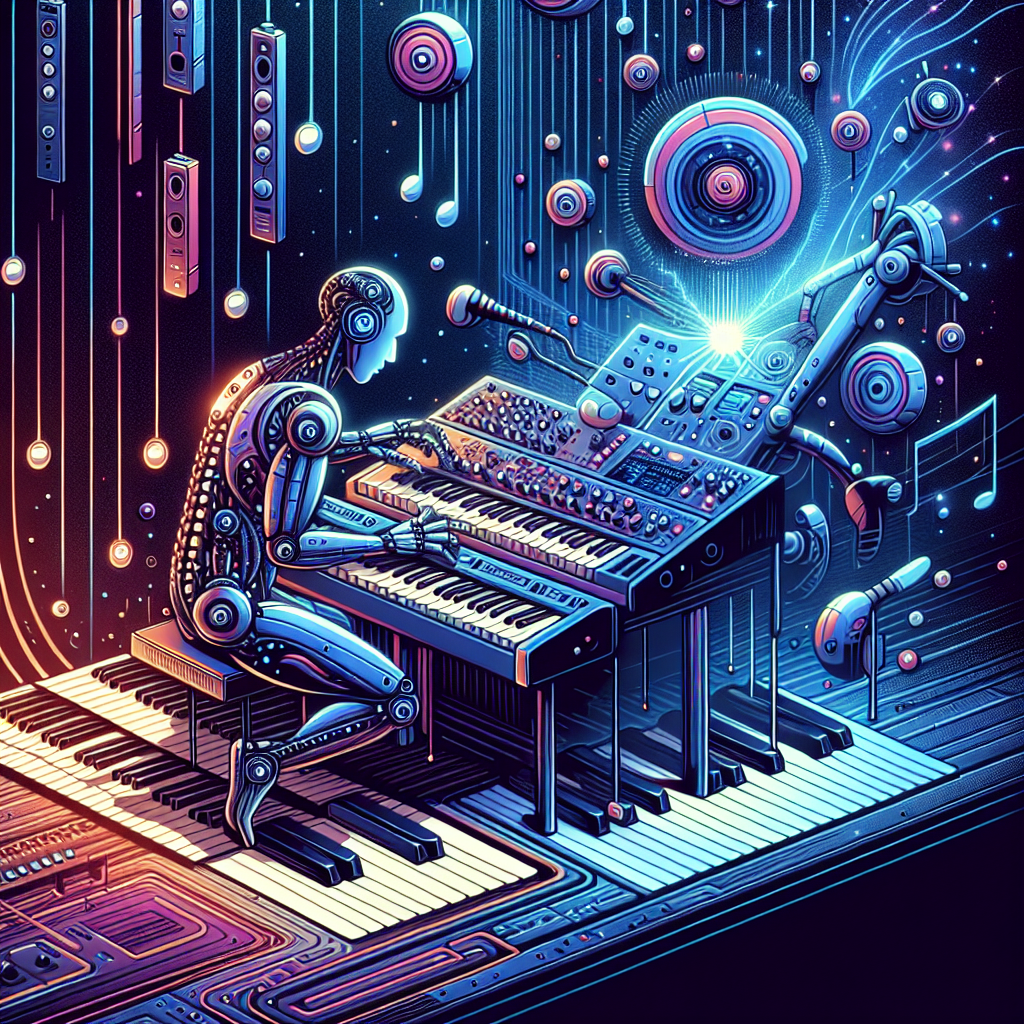Generative AI: A Tool for Personalized Music Composition
Generative artificial intelligence (AI) has been making waves in the music industry in recent years, offering a new tool for musicians and composers to create unique and personalized music compositions. This technology uses algorithms to generate music based on patterns and structures found in existing music, allowing users to create new pieces that are inspired by their favorite artists or genres. Generative AI has the potential to revolutionize the way music is composed, allowing for greater creativity and innovation in the music-making process.
How does Generative AI work?
Generative AI works by analyzing a large dataset of music to identify patterns and structures that are common in certain genres or styles. This data is then used to create new music compositions that are inspired by these patterns. The AI can generate melodies, harmonies, rhythms, and even lyrics based on the input it receives. Users can interact with the AI to tweak and customize the generated music to their liking, allowing for a personalized and unique composition.
Generative AI can also be trained on specific artists or genres to create music that is tailored to a particular style. For example, a user could input a dataset of jazz music and the AI would generate new jazz compositions based on the patterns it has learned from the dataset. This allows for endless possibilities for creating new and innovative music compositions.
Benefits of Generative AI for Music Composition
Generative AI offers several benefits for music composition, including:
1. Creativity: Generative AI can help musicians and composers break out of creative ruts by providing inspiration and new ideas for compositions. The AI can generate music that is fresh and unique, allowing users to explore new musical territories and experiment with different styles and genres.
2. Efficiency: Generative AI can speed up the music composition process by providing a starting point for compositions. Instead of starting from scratch, users can use the AI to generate a basic structure or melody and then build upon it to create a full composition. This can save time and effort in the music-making process.
3. Personalization: Generative AI allows for personalized music compositions that are tailored to the user’s preferences and tastes. Users can input their favorite artists, genres, or styles into the AI to create music that reflects their unique musical sensibilities. This can lead to more meaningful and engaging compositions that resonate with the user on a personal level.
4. Collaboration: Generative AI can facilitate collaboration between musicians and composers by providing a platform for sharing and exchanging musical ideas. Users can share their generated compositions with others and collaborate on new music projects in real-time. This can lead to the creation of innovative and diverse music compositions that blend different styles and influences.
FAQs about Generative AI for Music Composition
1. Is Generative AI capable of creating music that is as good as human composers?
While Generative AI can generate music that is inspired by human composers, it is not capable of creating music that is as nuanced or emotionally resonant as music created by humans. AI lacks the emotional intelligence and creativity of human composers, which can lead to compositions that feel robotic or formulaic. However, Generative AI can be a valuable tool for musicians and composers to spark creativity and explore new musical ideas.
2. Can Generative AI be used to create copyrighted music?
Generative AI can be used to create original music compositions that are not direct copies of existing copyrighted material. However, users should be cautious when using Generative AI to create music that closely resembles existing compositions, as this could potentially infringe on copyright laws. It is important to use Generative AI responsibly and respect the rights of original creators when using this technology for music composition.
3. How can musicians and composers get started with Generative AI for music composition?
Musicians and composers can get started with Generative AI for music composition by exploring various AI-powered tools and platforms that are available online. These tools often provide user-friendly interfaces that allow users to input their preferences and generate music compositions in real-time. Users can experiment with different settings and parameters to create unique and personalized music compositions that reflect their individual style and taste.
4. What are some examples of Generative AI tools for music composition?
There are several Generative AI tools available for music composition, including AIVA, Amper Music, and Google Magenta. These tools use advanced algorithms and machine learning techniques to generate music compositions based on user input and preferences. Users can interact with these tools to explore different musical styles and genres, create personalized compositions, and collaborate with other musicians and composers in real-time.
In conclusion, Generative AI is a powerful tool for personalized music composition that offers a range of benefits for musicians and composers. This technology can help users break out of creative ruts, speed up the music composition process, and create personalized music compositions that reflect their unique musical sensibilities. By exploring Generative AI tools and platforms, musicians and composers can unlock new creative possibilities and push the boundaries of music composition in exciting and innovative ways.

